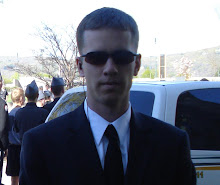"There's no argument over the choice between peace and war, but there's only one guaranteed way you can have peace—and you can have it in the next second—surrender.
Admittedly, there's a risk in any course we follow other than this, but every lesson of history tells us that the greater risk lies in appeasement, and this is the specter our well-meaning liberal friends refuse to face—that their policy of accommodation is appeasement, and it gives no choice between peace and war, only between fight or surrender. If we continue to accommodate, continue to back and retreat, eventually we have to face the final demand—the ultimatum. And what then—when Nikita Khrushchev has told his people he knows what our answer will be? He has told them that we're retreating under the pressure of the Cold War, and someday when the time comes to deliver the final ultimatum, our surrender will be voluntary, because by that time we will have been weakened from within spiritually, morally, and economically. He believes this because from our side he's heard voices pleading for "peace at any price" or "better Red than dead," or as one commentator put it, he'd rather "live on his knees than die on his feet." And therein lies the road to war, because those voices don't speak for the rest of us.
You and I know and do not believe that life is so dear and peace so sweet as to be purchased at the price of chains and slavery. If nothing in life is worth dying for, when did this begin—just in the face of this enemy? Or should Moses have told the children of
You and I have the courage to say to our enemies, "There is a price we will not pay." "There is a point beyond which they must not advance." And this—this is the meaning in the phrase of Barry Goldwater's "peace through strength." Winston Churchill said, "The destiny of man is not measured by material computations. When great forces are on the move in the world, we learn we're spirits—not animals." And he said, "There's something going on in time and space, and beyond time and space, which, whether we like it or not, spells duty."
You and I have a rendezvous with destiny.
We'll preserve for our children this, the last best hope of man on earth, or we'll sentence them to take the last step into a thousand years of darkness."

No comments:
Post a Comment